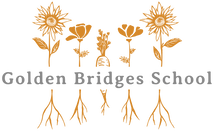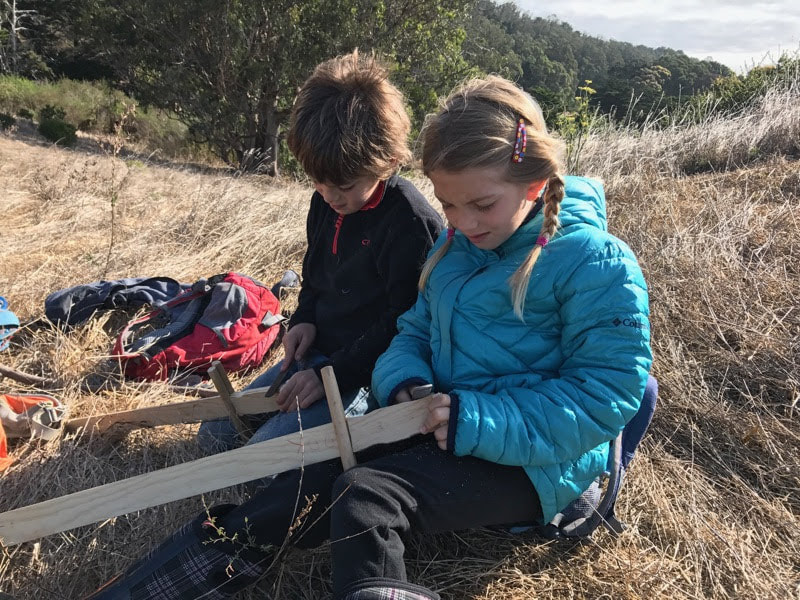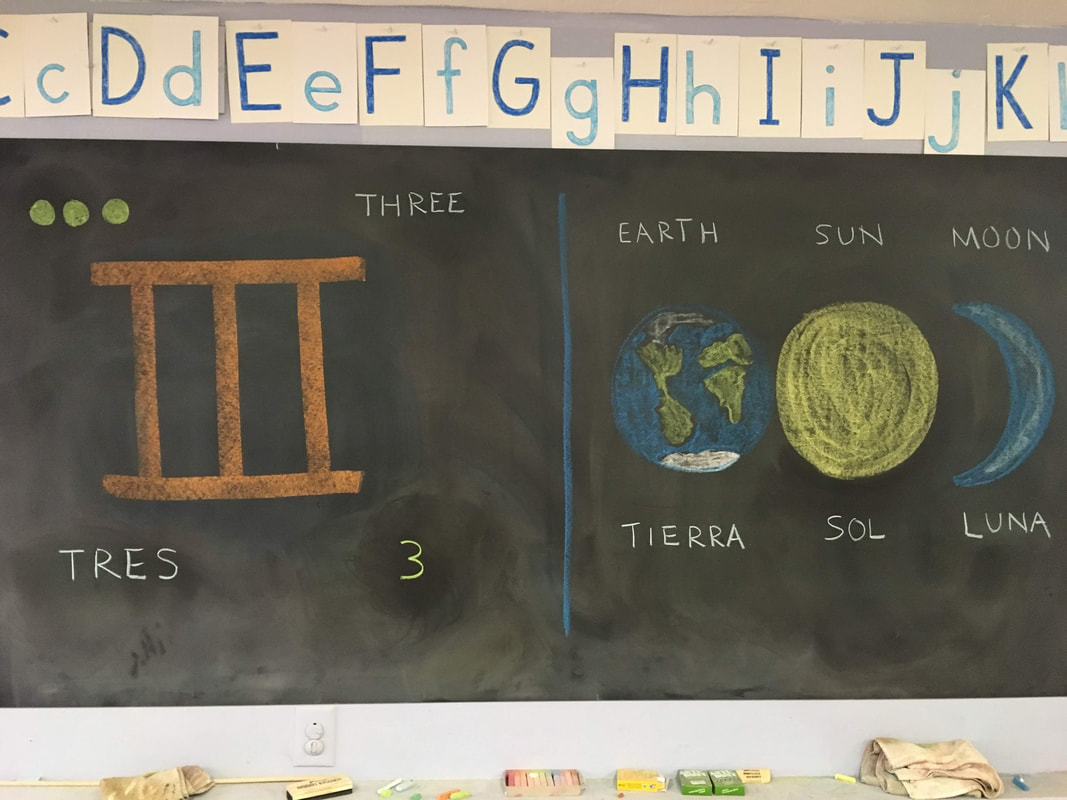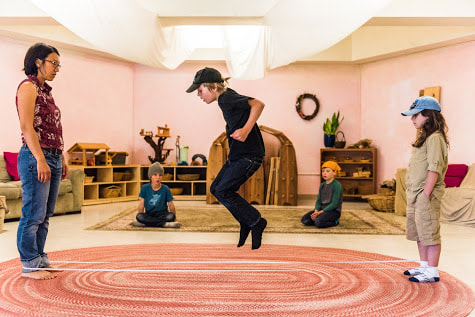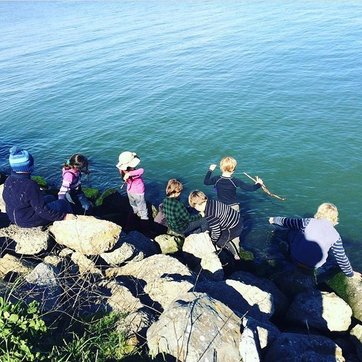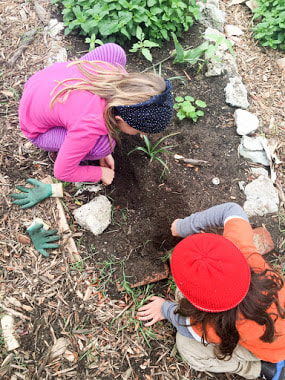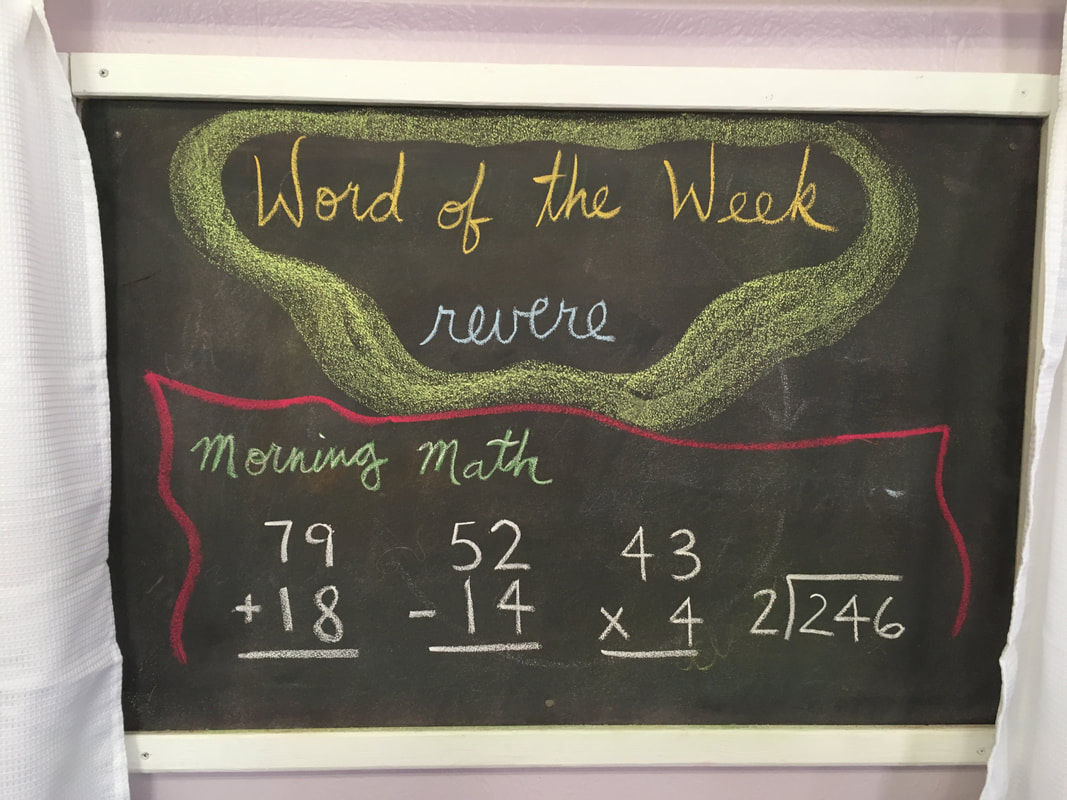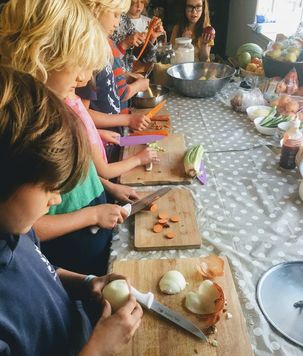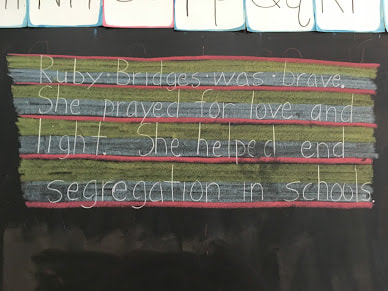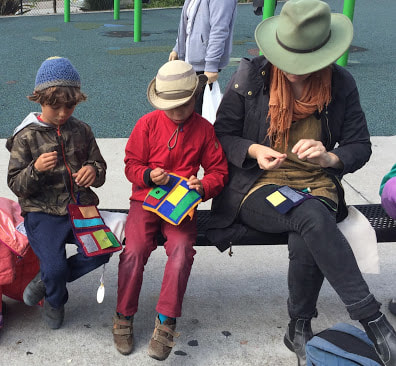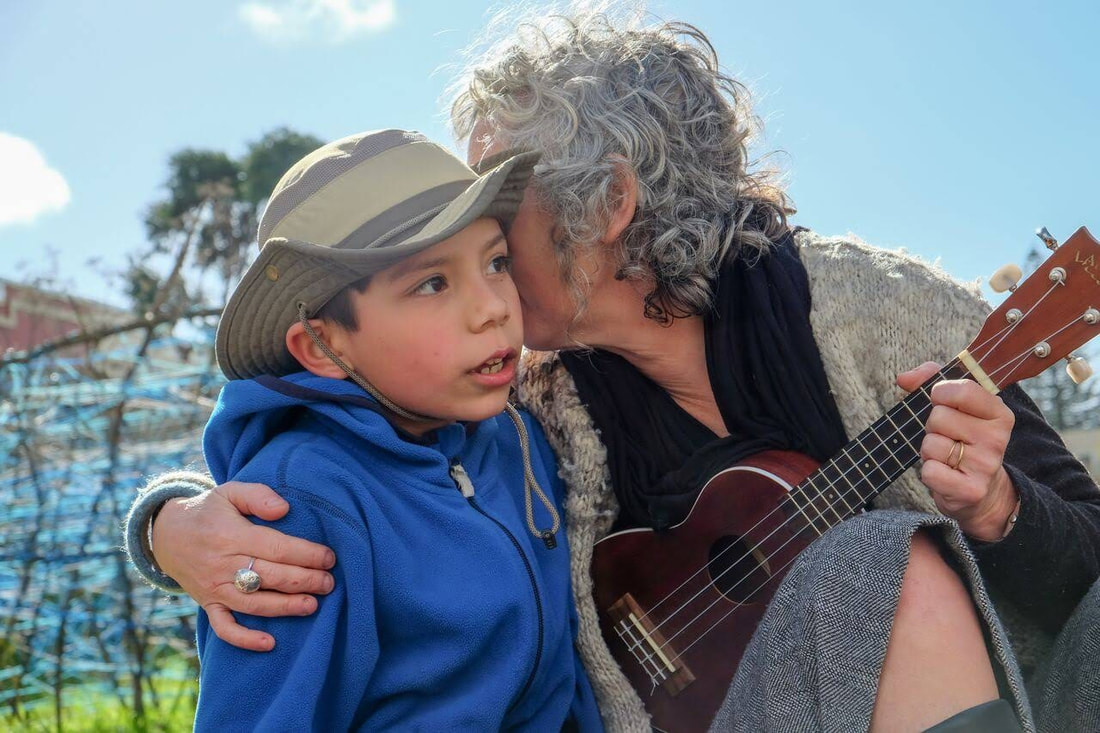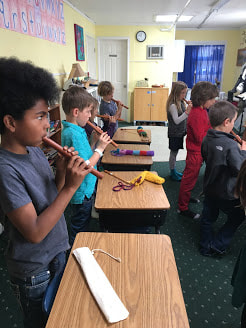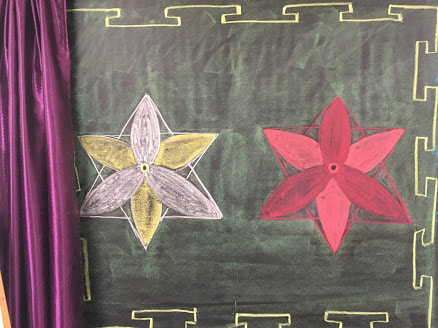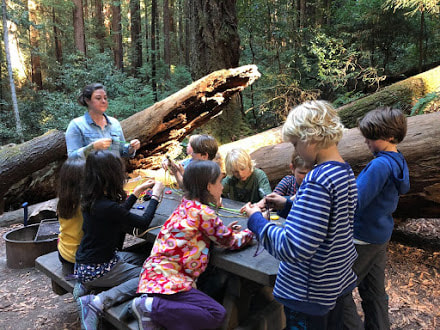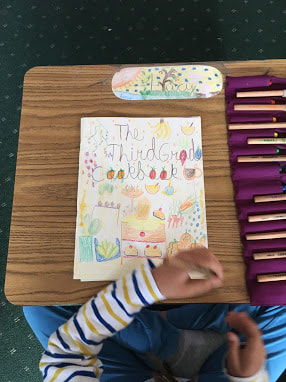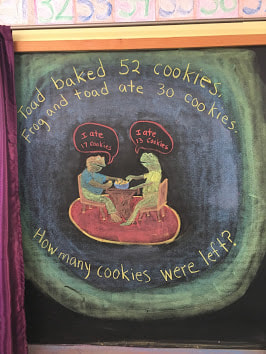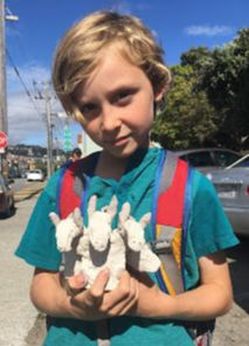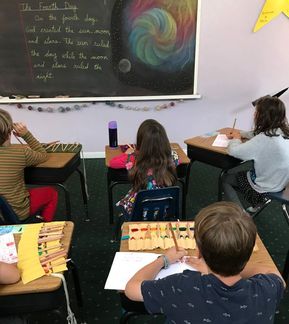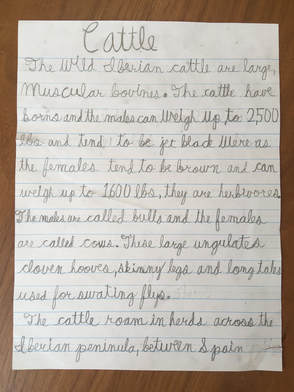|
We aim to bring education as a journey — an inspiring and creative one. Our class teachers are on a journey with their students to develop and cultivate a life-long love of learning. To do this, we bring artistic, experiential learning that reaches the child from the inside-out and introduces subjects from the whole, to the part. We also ask ourselves, Who are these children before us in this place and time? What windows and mirrors do they need in order to relate to the beauty of the world in a healthy way; in order to connect to their own self, in the skin they are in, and connect to others and the world?
We educate through hand-on activities and by fostering a rich imagination through storytelling — stories of the world that tell of creation, myths, legends and biographies that reach the heart of the child. Our curriculum mirrors and meets the inner life and developmental stages of the child as they grow through the grades. Our curriculum is also multi-disciplinary and multi-sensory; each subject is brought through seamlessly integrating artistic elements of teaching (visual, musical and movement) into the lesson, with overarching story themes for each grade. From First through Eighth grade the children begin their day with a two-hour Main Lesson block, alternating blocks for 4-6 weeks of Mathematics and Language Arts. Specialized blocks are brought beginning in Third Grade and specialized subjects begin in First Grade, including Spanish, Music, Handwork, Movement and Games, and Art (Painting, Form Drawing, Woodworking and Clay). Evaluations based on teacher observations, main lesson books, participation and reviews. Each teacher writes an end-of-year report for every student. Our early grades students spend part of every day or every week engaged in both the school farm and the natural spaces of San Francisco, through all seasons. In this way, children are engaged learners and active participants in their own educational journey. Place-based education creates community minded citizens who care deeply about the environment and spaces with which they interact. They understand their own place in the city and town in which they are growing, becoming stewards and advocates in the most organic way. Because we value social and emotional learning and understand its importance in nurturing the whole child, our teachers devote as much time addressing the social fabric of the class as they do as the academic knowledge. Thus, Golden Bridges graduates will be compassionate individuals who will have a strong moral compass in social justice issues and a love for humanity. They will be self-confident and service-oriented free thinkers, possessing a harmony with their physical, emotional and mental bodies. Our graduates will approach life with flexibility and have an appreciation for their own and others' gifts. First GradeThe First Grader is filled enthusiasm for the beginning of their formal academic learning. The First Grade teacher is asking, How can I help each student feel successful? How will I use form and rhythm to create a healthy social and learning environment so that each student feels confident in her ability to learn?
First Grade is also about teaching academic foundations—a time to awaken the wonders of numbers, letters, language, color, rhyme, natural phenomena, classroom habits and a healthy social life. In First Grade the children now open their hearts to the world around them and develop the life of feeling. Our curriculum appeals to the child's sense of wonder and imagination through the overarching theme of fairy and folk tales from around the world. Through this theme, all subjects are taught with artistry. The sciences are brought through weekly time spent in the city's outdoor spaces of Fort Funston, Golden Gate Park, McLaren Park and Glen Canyon, rotating seasonally. A detailed outline of our curriculum goals for First Grade are below: MATH
Field Trips: City Wide Adventures (Rock Climbing, Slide Ranch, etc.) Spanish: Read here Handwork: Knitting Music: Pentatonic Flute; Singing in unison Second GradeSecond Graders are strengthening and expanding the fundamental concepts they learned in First Grade, with an overarching theme of morality. This time of development typically includes a tendency toward the polarities of being human as they seesaw through moods, social engagement, moral questions, and intellectual challenges. The social life of the second grader can be full of deep love, playfulness, hard work, and creative tasks, and it is also typically fraught with disagreements, irritability, moral struggles (such as truth telling vs. tattle telling), and a bit of disenchantment. This is brought to the students through storytelling of modern and historic saints, or courageous, noble and sacrificing individuals with a purpose who can be found around the world. These stories are also accompanied by animal fables. The child in second grade still needs ample movement of their body and this is met both in the classroom through movement games, as well as being outdoors.
A detailed outline of our curriculum goals for Second Grade are below: MATH
Field Trips: City Wide Adventures (SF Symphony, Paddle Boating, etc.) Spanish: Read here Handwork: Knitting, continued Music: Pentatonic Flute; Singing in unison Third GradeThe Third Grader is more completely and decisively realizing their individuality with a strong internal shift in consciousness. While still alternating between Math and Language Arts blocks, the overarching theme for Third Grade is being able to see the “other” with empathy and compassion. Stories of the ancient Hebrew people bring the picture of humans building homes and community through cultivation of the land. The students begin to engage in more specialized blocks with their main teachers, including: building shelters, money, telling time, beginning measuring (often through cooking), creating calendars, reading chapter books, writing compositions that are increasingly enriched with adjectives and adverbs, crocheting and learning about fibers. Each learning activity is meant to connect the Third Grade students in a very concrete way to the world around them. They are growing more self-confidence and community awareness.
A detailed outline of our curriculum goals for Third Grade are below: MATH
Field Trips: Overnight Camping for outdoor skills building and study of natural sciencesSpanish: Read here Handwork: Crocheting Music: Diatonic Flute; Singing in Cannon Fourth GradeThe Fourth Grader is looking at the world in an increasingly awakened state. An underlying theme in Fourth Grade lessons is that of grounding the children, making them feel at home in time and space. This new consciousness is met through the study of local geography and local history, as well as study of the animals. The child at this age tends to be more self-aware, and thus is ready to take up greater challenges on the academic front. Fourth grade offers the child the opportunity to engage in their first “research” project through the study of animals. Each of the other parts of the curriculum support the fourth grade child in finding and knowing their place, and in being comfortable in the time in which they find themselves. Creation stories from Norse Mythology, the Kalevala, and others are brought in order to address the ever-changing emotions of the fourth grade child. The stories contain moments of humor, anger, suspense and tragedy and give the students imaginative content through which they can explore their emerging, rich emotional life.
A detailed outline of our curriculum goals for Fourth Grade are below: MATH
Field Trips: Overnight Camping for study of California history, natural sciences, community building and self-confidence Spanish: Read here Handwork: Cross-stitch Music: Diatonic Flute and Percussion; Part-singing with melody and harmony |
"This school has prioritized what I believe are the most important values in developing young people to be thoughtful, creative, capable and community-oriented citizens. My son has thrived at GBS and sometimes I'm in awe of his patience, kindness and focus —all areas in which I've seen him grow through his time at school. He values other people, and the Earth. I really couldn't ask for more as a foundation for his future."
—GBS Parent |
"Those who contemplate the beauty of the earth find reserves of strength that will endure as long as life lasts. There is something infinitely healing in the repeated refrains of nature - the assurance that dawn comes after night and spring after winter."
- Rachel Carson
|
© COPYRIGHT 2022. ALL RIGHTS RESERVED. PRIVACY POLICY |
